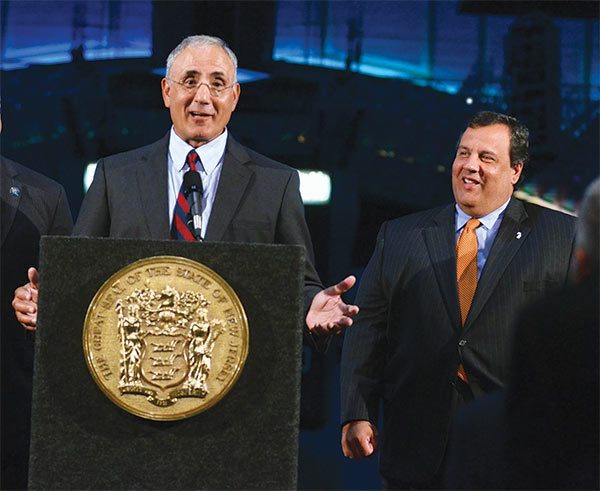
Early last year, Trenton gave the Casino Reinvestment Development Authority control over the newly established tourism district in Atlantic City in the hopes that this unprecedented move would revitalize the city’s struggling gaming and hospitality industries. The change empowered the CRDA to actually do something meaningful about the future of Atlantic City in terms of zoning, redevelopment, neighborhood revitalization and marketing.
The new tourism district, which includes the Boardwalk and its neighboring streets; the marina district; and Bader Field, a 200-acre former airfield, now falls under the purview of veteran developer and Hoboken native John Palmieri, who was appointed in October as CRDA executive director.
The CRDA is funded by 1.25 percent of gross casino earnings—funds that used to be shared with development projects throughout the state. The authority has the power to decide the size and location of new construction within the district—crucial elements for a meaningful development plan. Previously, city officials controlled such decisions.
Palmieri is bullish on Atlantic City’s prospects, including its ability to compete with Las Vegas as a family destination. “We need to build on our strengths, including the retail outlet precinct,” says Palmieri. “And we need to promote the good things that are happening.”
A key challenge is identifying opportunities for development within the tourism district. “We have many vacant lots and dilapidated properties,” says the man some refer to as the new czar of Atlantic City. “We do not necessarily need to build casinos, although the Hard Rock has presented a plan, which is good news, and Revel is being built, so the casinos still believe they can get their fair share of the market. But beyond casino activities, we will be looking at what we can do to enhance the destination environment.”
The ambitious Revel hotel and casino, scheduled to open in May, is expected to give the city a major boost. “This $2.5 billion investment will serve as a catalyst for additional mixed-use investment in the Inlet District and reinforce the city’s position as a destination for gaming with high-end resort-quality amenities,” says Palmieri.
He expects additional private investment to be made in new residential development within the district, particularly filling in vacant properties. “If we fill those vacant lots, work within the Revel district and the South Inlet, which is an extremely beautiful precinct, and build a new neighborhood, then I think we are going in the right direction,” says the CRDA chief.
Beyond new construction, Palmieri stresses the importance of creating a clean and safe environment for residents and tourists. Without that, he says, it is virtually impossible to move forward with any meaningful redevelopment efforts. To that end, Tom Gilbert, a former state police lieutenant colonel, is responsible for coordinating public-safety efforts between the district, local police, the sheriff’s office and state police. While the Atlantic City police department controls all policing activities within the jurisdiction of Atlantic City, Gilbert, who reports to the state attorney general, and the CRDA are expected to develop a crime-prevention program for the tourism district.
Marketing is yet another element. The Atlantic City Alliance has scheduled a spring rollout of a new five-year, $130 million branding and marketing campaign. “This is going to be a paradigm changer,” says Palmieri.
The CRDA’s objectives are embodied in its newly approved Tourism District Master Plan. When you look at all that’s on the table, the future of Atlantic City seems like a better bet than at any time in the recent past.



